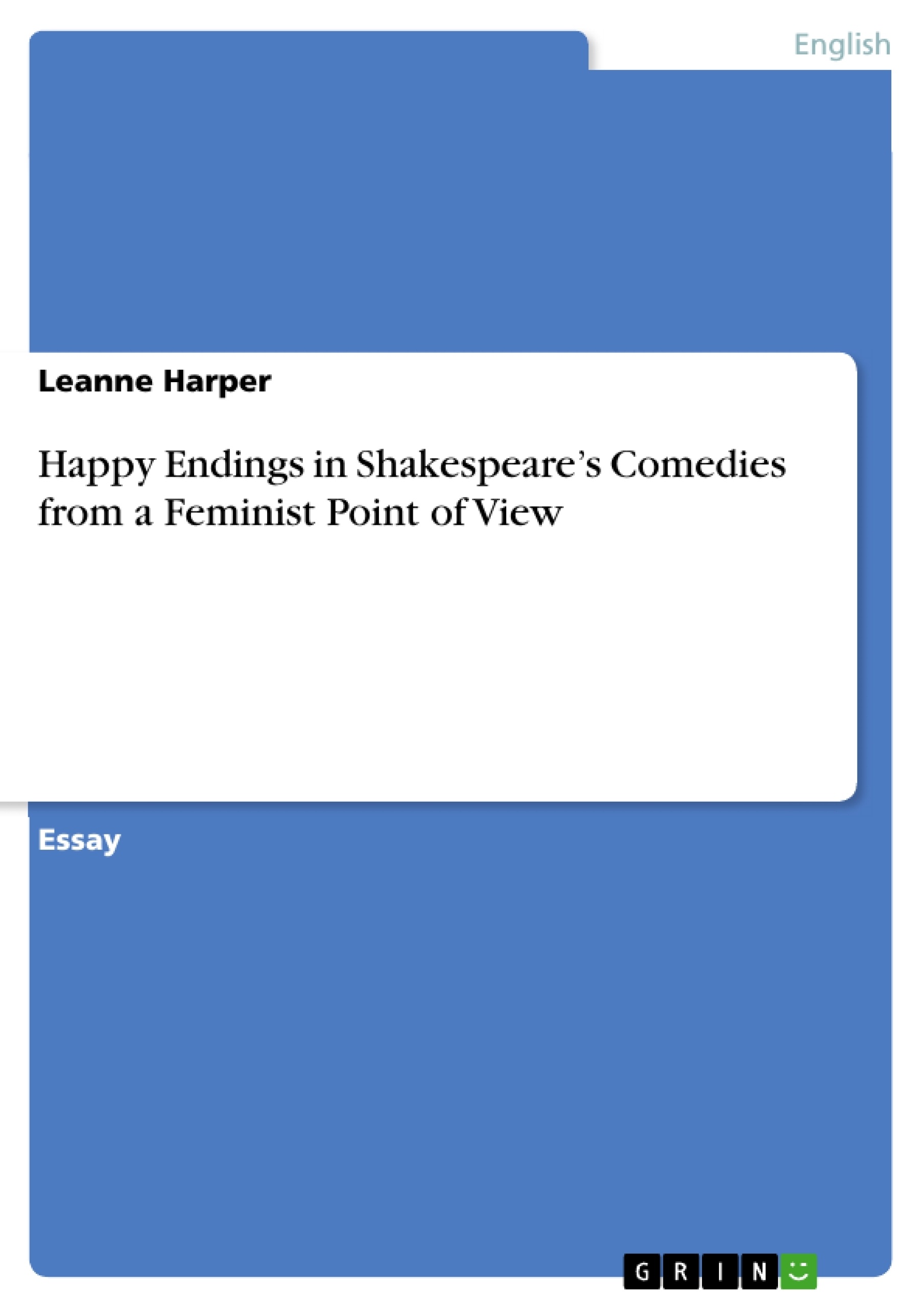This essay explores the controversial endings of the following plays:
The Taming of the Shrew
A midsummer Night’s Dream
The Merchant of Venice.
Paying particular attention to the language in the last scenes and Shakespeare's enigmatic representation of the female characters with regards to gender roles.
Inhaltsverzeichnis (Table of Contents)
- The Taming of the Shrew
- Kate's Transformation
- Audience Reception
- The Induction
- Farcical Elements
- Petruchio's Role
- The Merchant of Venice
- Portia's Role
Zielsetzung und Themenschwerpunkte (Objectives and Key Themes)
This essay aims to analyze the final scenes of three Shakespearean comedies – The Taming of the Shrew, A Midsummer Night's Dream, and The Merchant of Venice – from a feminist perspective. By examining how these endings challenge or uphold traditional gender roles, the essay will explore Shakespeare's potential intentions and the play's reception by contemporary audiences. Key themes include: * **Gender roles and power dynamics:** The essay explores how these plays portray traditional gender roles and how characters manipulate power relationships. * **Feminist interpretations:** The essay examines feminist readings of the plays, particularly in relation to the final scenes. * **Audience reception and contemporary context:** The essay considers how Elizabethan audiences might have interpreted the plays' endings and how these interpretations differ from modern perspectives. * **The nature of comedy and its relationship to gender:** The essay explores how the comedic elements of the plays contribute to or challenge the portrayal of gender. * **The use of farce and theatricality:** The essay analyzes the use of farce and theatricality in the final scenes and how these elements contribute to the overall meaning of the plays.Zusammenfassung der Kapitel (Chapter Summaries)
The Taming of the Shrew
The chapter focuses on the controversial final scene of The Taming of the Shrew, where Kate, initially portrayed as a spirited and rebellious woman, undergoes a dramatic transformation. The chapter examines arguments from feminist critics, who view Kate's final speech as a product of patriarchal oppression, and scholars who see it as a farcical performance that ultimately mocks societal expectations of women. The chapter also considers the role of the Induction, suggesting that it may function to distance the audience from the play's misogyny, creating a sense of fantasy.The Merchant of Venice
This chapter, while not fully developed, hints at the importance of Portia's character in The Merchant of Venice. It suggests that Portia, in contrast to Kate, represents a triumphant female figure who overcomes patriarchal limitations. The essay mentions that Portia's role will be explored in greater detail later in the text.Schlüsselwörter (Keywords)
This essay examines feminist perspectives, Shakespearean comedy, power dynamics, gender roles, Elizabethan audience reception, farcical elements, theatrical performance, and the influence of historical and cultural context on the interpretation of literary works.
Excerpt out of 16 pages
- scroll top
- Quote paper
- Leanne Harper (Author), 2011, Happy Endings in Shakespeare’s Comedies from a Feminist Point of View, Munich, GRIN Verlag, https://www.grin.com/document/200830
Look inside the ebook



